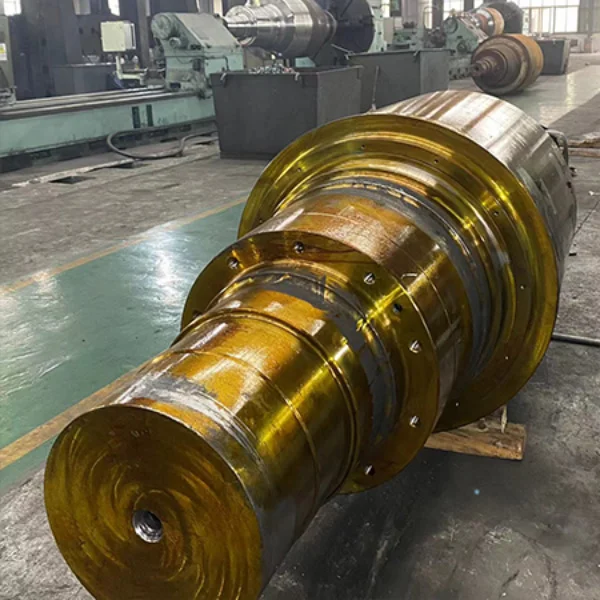In the world of industrial machinery, motor shafts are often overlooked despite being one of the most essential components in mechanical power transmission. These simple-looking cylindrical parts play a pivotal role in converting and transferring energy from a motor to the machinery it powers. From chemical production to environmental recycling systems, motor shafts are at the heart of industrial performance and reliability.

What Is a Motor Shaft?
A motor shaft is a rotating component that transmits torque from a motor to other parts of a machine. It's designed to handle both rotational motion and load-bearing functions, ensuring that power is efficiently delivered to pumps, compressors, conveyors, or mixers.
Motor shafts must meet precise mechanical standards in terms of strength, alignment, and surface finish to operate effectively under varying loads and harsh environmental conditions.
Key Functions of Motor Shafts in Industry
-
Torque Transmission
Motor shafts transmit the rotational force needed to drive various types of industrial equipment. -
Load Bearing
They support and stabilize rotating parts such as gears, pulleys, and flywheels. -
Vibration Reduction
A well-balanced shaft reduces system vibrations, prolonging the life of both the motor and connected equipment. -
Alignment Maintenance
Shafts help maintain proper alignment in machinery, ensuring efficient operation and minimizing wear and tear.
Industrial Applications of Motor Shafts
Motor shafts are indispensable in a wide range of industrial sectors. One example is the chemical and fertilizer industries, where precision and durability are key due to high temperatures, pressures, and corrosive environments.
Companies like Sawei Equipment Technology specialize in designing and developing complete process equipment systems, many of which rely on advanced motor shaft configurations. Their expertise lies particularly in sectors such as:
-
Agrochemical Processing: Including phosphate chemicals, sulfur-based chemicals, ammonium phosphate, and compound fertilizer projects like potassium sulfate.
-
Biological Fermentation: Including systems for carbon-containing waste gas treatment, waste oil recovery, and industrial environmental protection.
In these complex and demanding applications, motor shafts must perform with high accuracy and resilience. Sawei’s integrated equipment systems are engineered with these requirements in mind, ensuring that each component—from motor shaft to reactor—is built for peak performance and durability.
Factors to Consider When Choosing a Motor Shaft
When selecting motor shafts for industrial machinery, consider:
-
Material strength and corrosion resistance
-
Shaft diameter and length
-
Balance and tolerance levels
-
Compatibility with couplings and bearings
-
Environmental conditions (heat, chemicals, moisture)
The right motor shaft enhances equipment efficiency and minimizes costly downtime—a critical consideration in large-scale fertilizer production or biowaste recovery systems.
Final Thoughts
Motor shafts may seem simple, but their function is fundamental in driving complex industrial systems. For companies operating in challenging environments—such as the chemical or bio-fermentation industries—precision-engineered shafts are not just a preference, but a necessity.
Sawei Equipment Technology brings deep industry expertise and a strong commitment to reliability, designing systems that leverage the full potential of high-performance components like motor shafts. Whether it’s powering a phosphate fertilizer line or recovering waste gas in a fermentation plant, Sawei ensures every detail, including the motor shaft, meets the highest industrial standards.
www.swasps.com
Jiangsu Sawei Equipment Technology Co., Ltd.

